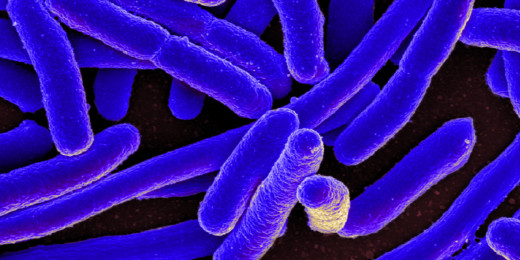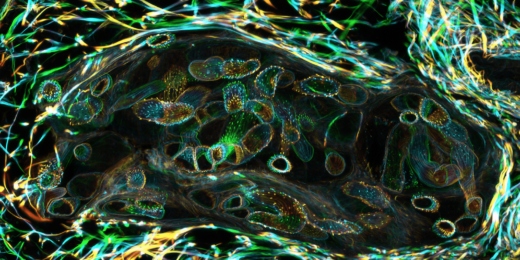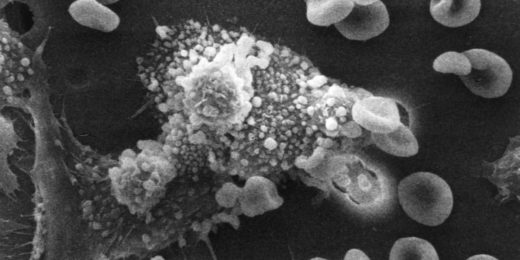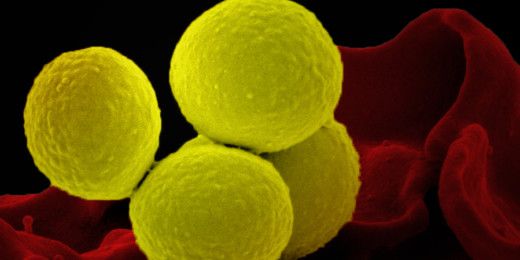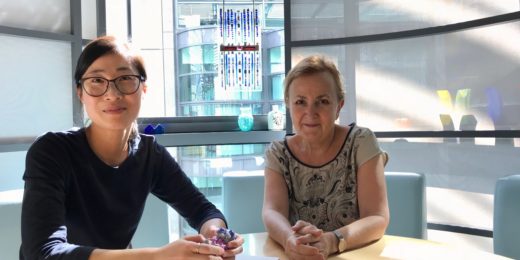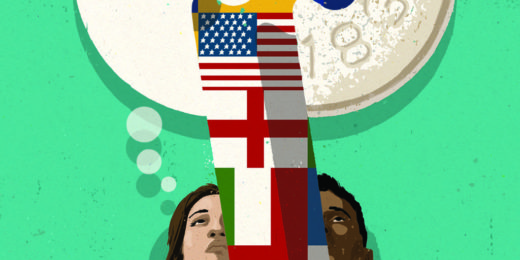A study provides evidence that the drug azlocillin eliminates the bacteria that cause Lyme disease at the onset of infection in lab mice and cultures.
Category: Drug Development
When lab tests are misleading: A mystery in antibiotic resistance
Most children with antibiotic-resistant urinary tract infections get better on less powerful antibiotics than lab tests say they need, says Stanford study.
Researchers harness basic and bizarre science to inform human biology and disease
Hundreds of Stanford scientists are studying what makes biology tick, from obscure molecular structures in the malaria parasite to flower-shaped sea squirts.
Pair of pipsqueak proteins punch malaria parasite where it hurts most: its proteasome
The parasite that causes malaria is remarkably adept at developing resistance to the drugs devised to combat it. But new research suggests a solution.
On the importance of culture, partnerships and diversity at the Dean’s Lecture Series
At a recent Dean's Lecture Series, Dean Lloyd Minor discussed organizational culture and diversity with Emma Walmsley, CEO of GlaxoSmithKline.
Anti-CD47 antibody trial in advanced cancers shows treatment appears safe, well-tolerated
An antibody against the "don't eat me" signal on cancer cells appears safe and well-tolerated by patients with advanced cancers. A phase 2 trial is planned.
For patients on antidepressants, a common opioid is less effective
Patients who are taking the most common type of antidepressant may feel more pain when taking certain opioids, Stanford researchers have found.
Compound identified that may help treat heart failure
Stanford researchers have discovered a compound that reduces the symptoms of heart failure after a heart attack in initial animal tests.
Dissecting high drug costs
A Stanford professor unpacks some of the dynamics of the current drug pricing system and the potential effects of other approaches to this market.
A new strategy for combatting antibiotic-resistant infections
Stanford chemists have developed a potential new strategy for fighting antibiotic-resistant bacterium — adding a new molecule onto an existing antibiotic.
Stanford researchers find that small molecule may help treat enzyme deficiency
Stanford researchers have identified a small molecule that may help curb some of the symptoms of a genetic deficiency in glucose-6-phosphate dehydrogenase.
Stanford scientist is working to halt spread of hepatitis B
Decision scientist Mehlika Toy is working with the WHO to help eliminate the public health burden of hepatitis B by the year 2030.
Turning molecules into medicine with SPARK
As someone who had spent her career studying molecules on a computer screen, experiments involving people were a revelation and inspiration for Jane Tseng, PhD, …
“Mood mirror” in blood: Might its absence bring on the blues?
Low levels of a substance, acetyl-L-carnitine, in the blood are associated with depression. Could this "mood mirror" be a cure for the blues?
CRISPR helps scientists track down potential therapeutic targets for ALS
Scientists have used genome editing to pinpoint genes that reveal information about ALS and may even protect against the degeneration of neurons.
The efficacy of antidepressants: A Q&A with John Ioannidis
In a meta-analysis of more than 500 clinical trials, researchers have new conclusions about the efficacy of 21 different antidepressants.



